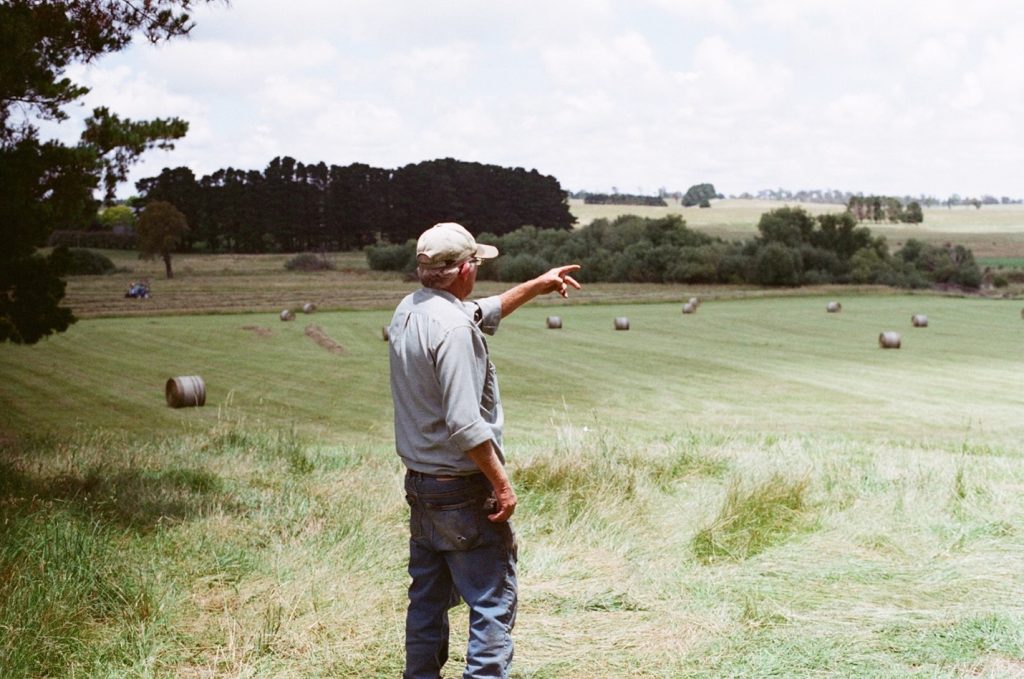When it rains, it pours — especially if you’re an Aussie farmer. Our farms are exposed to a variety of threats, and bushfire season is one that we all dread the most. As the earth’s temperature rises, our summers are getting hotter and hotter, with prolonged dry conditions. The result? An ill-fated recipe for disaster. But it doesn’t always mean that you and your farm are completely doomed.
Let’s take a look at this season’s bushfire risk, the factors adding fuel to the fire and how you, as a farmer, can prepare.
This season’s bushfire risk
Although we never quite know what’s around the corner, we’ve been told to prepare for a milder bushfire season this summer. We’ll enter the coming season with a bushfire risk rating of 63%, lower than the government’s annual target of 70%, thanks to higher-than-average rainfalls.
Still, authorities are warning that we should remain vigilant in the face of changing climate conditions. Year by year, bushfire risk is increasing nationally, as Australian summers are set to get drier and hotter. Forty years of data on the Forest Fire Danger Index (FFDI) shows bushfire seasons have already become longer, start earlier and are more extreme.
These predictions are a warning sign for farmers. Understanding your bushfire risk will help you make the right decisions to improve your property’s bushfire resilience and make sure you’re prepared well ahead of an outbreak.
But what exactly fuels a bushfire? And why is our risk increasing?
Weather conditions influence the size, intensity, speed, and predictability of bushfires and how dangerous they can be to our community.
Vegetation growth can be encouraged by periods of wet weather. This increases the amount of fuel available (grass, leaf litter, twigs, bark). When the weather is hot, the humidity is low, rain is limited, and vegetation becomes dry and more flammable. A fire is more likely to start, and continue to burn, in hot, dry, and windy weather.
So, why has the danger become greater in recent years? Many sources, including CSIRO, point to climate change. The burning of coal, oil and gas is driving up global temperatures, leading to hotter Australian conditions. We’re seeing longer and hotter heatwaves, less rainfall and prolonged drought.
Bushfire preparation for Australian farmers
Australia is one of the most fire-prone areas in the world. As Australian farmers, you need a fire survival plan to help protect your family, staff, production facilities, and livestock. Here are some top recommendations to minimise the impact of fire on your property through protection and early prevention:
-
- Refuge paddock: At the start of the fire season, identify a suitable refuge paddock such as a green summer crop or bare paddock in the middle of your farm with good laneway access. Have a clear plan about how and when animals will be moved.
- Grass, weed and debris: Keep your grass short, while slashing and spraying along fences and around buildings to create a bare soil fuel break. You should clear rubbish and debris regularly from around your property.
- Hay, fodder, and silage management: These elements of your farm pose a significant threat when it comes to ignition. You should ensure that hay is cured to the proper moisture level before storing it in more than one place on your property to reduce risk. Try to ensure the location is protected from ember attack and stored in a well-maintained shed.
- Machinery and chemicals inventory: Keep an approximate inventory of your chemicals and machinery and identify where they can be stored safely.
- Water: You’ll need easy access to water and a well-maintained, working petrol/diesel pump. Mark all your water sources so that emergency services can view this easily in emergencies.
- Private firefighting equipment: It is good practice to check and maintain your firefighting equipment, such as pumps and hoses, regularly.
- Adequate insurance: Farm insurance is designed to provide a safeguard against adversity, giving you peace of mind if your assets are vulnerable to the ravages of fire.
If you do find yourself affected by a bushfire, you may be eligible for support services from the Department of Agriculture, Water and the Environment who works to provide support such as grants and rural financial counsellors.
In the event of a bushfire, the wellbeing of yourself and your family comes first. Stay calm, call 000, comply with emergency services and take the appropriate steps to keep everyone safe.
Have you got adequate farm insurance for bushfire season?
Bushfire preparation can help you save lives, buildings and minimise destruction. But mother nature is uncontrollable at the best of times, and bushfires can quickly spiral out of control. Farm insurance can help you cover any damages or losses from a bushfire — giving you the security of knowing that you can rebuild.
At Western General Insurance, our experts help you to find the best insurance solutions for your farm, lifting a huge weight off your shoulders should anything happen to your property.
Contact us today to talk to an expert.

